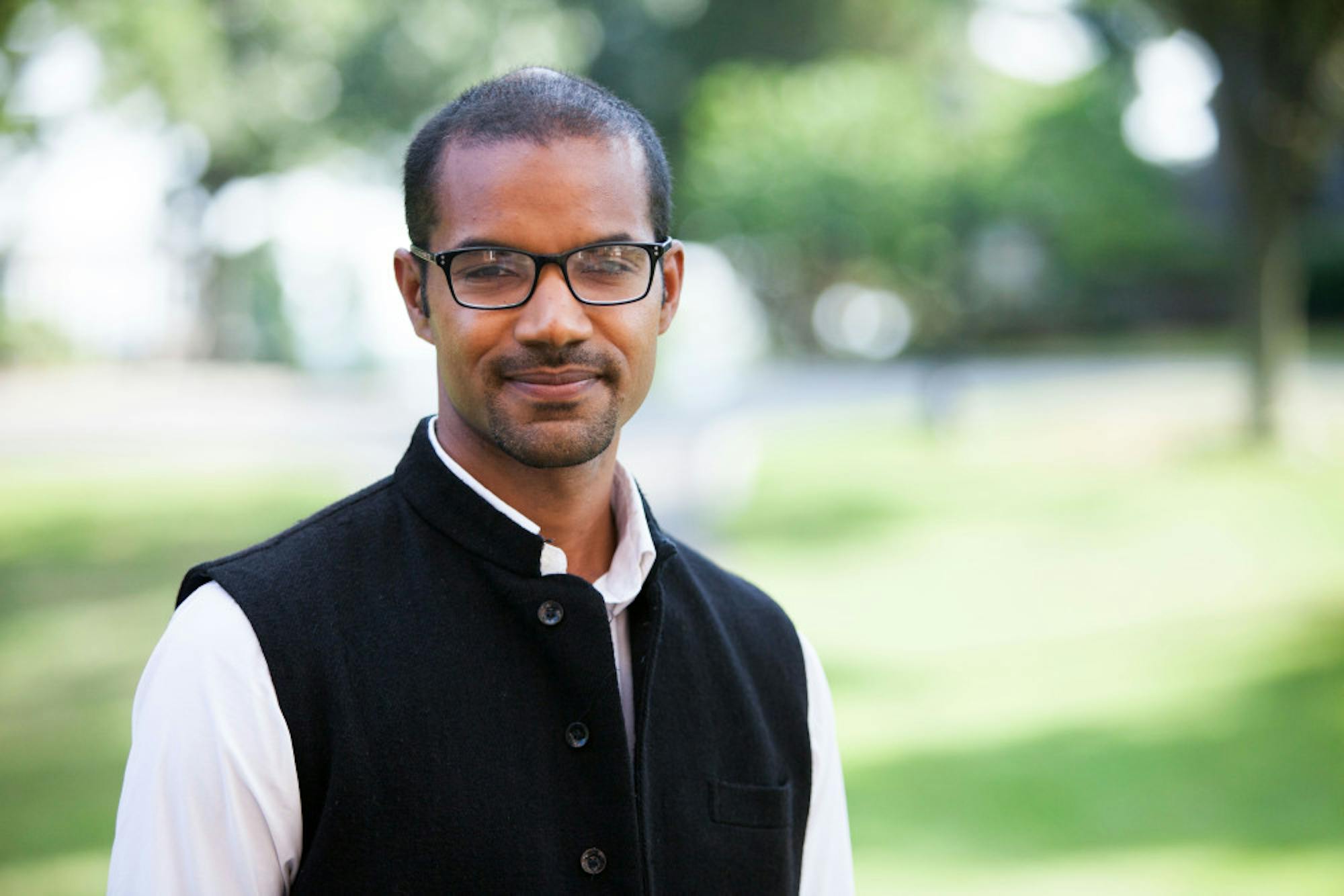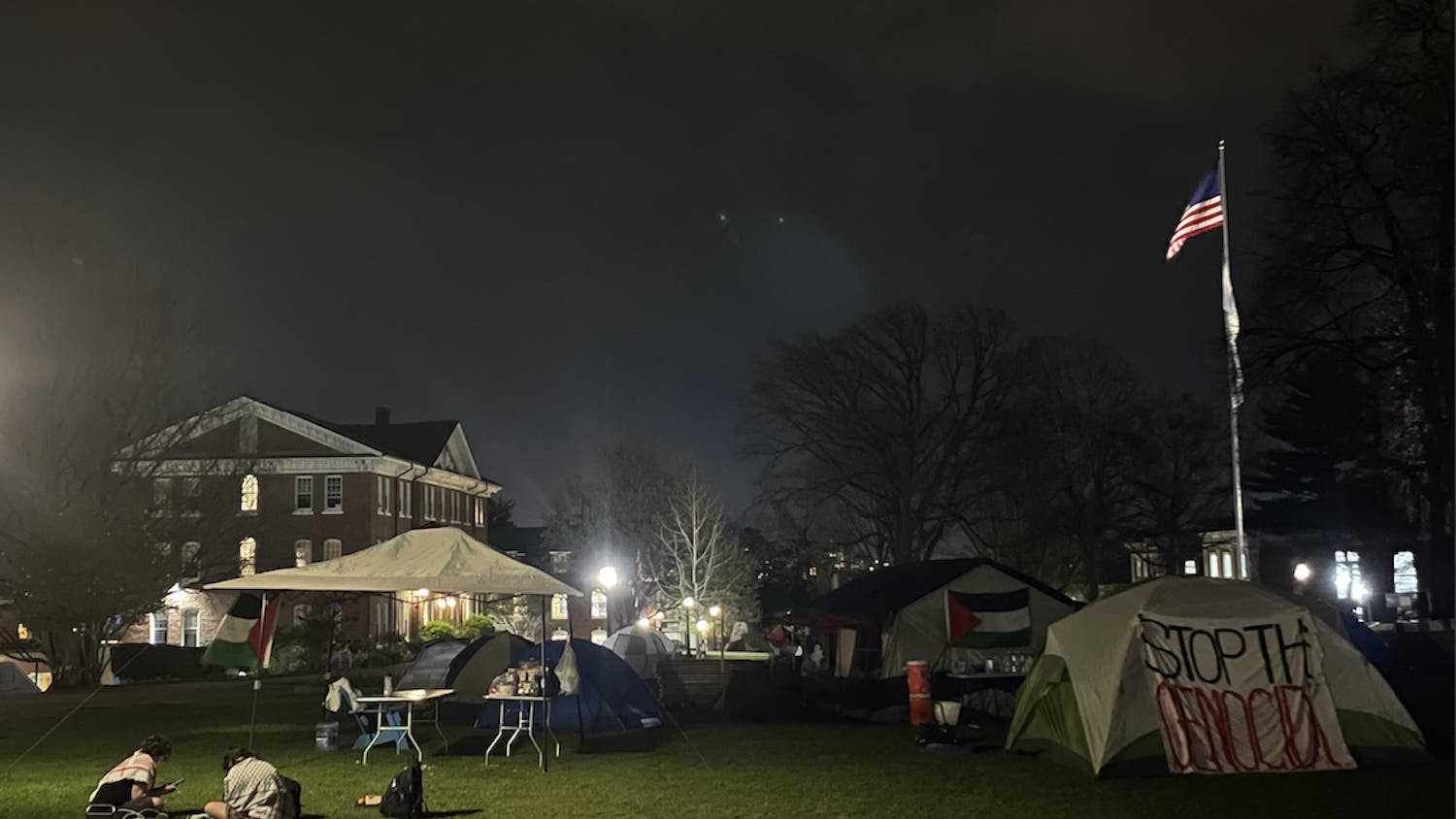The Consortium of Studies in Race, Colonialism, and Diaspora(RCD) will become a recognized department, having received approval from the Board of Trustees during their Nov. 2 and Nov. 3 meetings, according to Secretary of the Corporation Paul Tringale. This is the largest change to RCD since its formation as an interdisciplinary consortium in summer 2014.Dean of the School of Arts and Sciences James Glaser said that the department is set to be fully operational for the upcoming academic year.
Provost and Senior Vice President ad interim Deborah Kochevar said that forming a department out of RCD was a natural development for the consortium.
“Stabilizing [RCD] and being sure they have what they need to thrive struck me as an important priority," she said. "The next step was to become a department and to be able to then have some vision and ability operationally to think about what faculty do we need."
According to Kochevar, RCD Director Kris Manjapra will serve as the new department's inaugural chair.Manjapra, who is also an associate professor of history, said that being a consortium did not allow for the same benefits that full departments enjoyed. In particular, Manjapra said RCD currently doesn't have control over course offerings as a consortium, mainly offering cross-listed courses taught by other existing departments.
"We don't have control over our curriculum -- we’re basically a recipient of the goodwill of the departments where the faculty are actually located," Manjapra said.
Manjapra said that this resulted in less-defined curricula and more variation between offerings.
"Department status allows us to be more curricularly strategic," Manjapra said. "We would be able to coordinate our curriculum much better and to develop a more consistent and durable set of classes over time that would benefit our students — our majors and our minors."Director of Africana Studies H. Adlai Murdoch said that the change will alleviate current instability, adding that he thinks the RCD will play a more active role in synthesizing academic crossovers.
“The only way it seemed that we could stem the tide is to take control of our future or destiny, so to speak, by being able to therefore offer courses on our own," Murdoch, who is also a professor of Francophone studies, said. “We expect to be able to flesh out things, like curricular offerings, that might establish interdisciplinary links within a number of those programs within the RCD, and have faculty that might be able to offer courses that might bridge fields between, say, for example, American Studies and Colonialism Studies, or Africana Studies and Latino Studies."
Manjapra said the soon-to-be department has faced troubles with faculty departures, noting last year's loss of faculty of color, many of whom were affiliated with the RCD, which reduced academic support and mentorship opportunities for students.
“I think students who have taken RCD classes or who are RCD majors or minors, they would probably tell you that they have noticed a lot of departures of faculty in the past. Especially in the past two years, they have noticed that the RCD is somewhat unstable in terms of its curriculum," he said. “There are courses that come in, courses that come out, and that has to do with the loss of faculty. In fact, we’ve lost about 50 classes from the RCD curriculum over the past two years, and that affects our students."
“We have, at Tufts, had a number of new hires of faculty who work in RCD themes or in the RCD set of programs, but in order to cultivate those young faculty members to mentor them and to retain them, over time, we do need something more [than] what we [had as a consortium]."
Manjapra said that only departments at Tufts can hire faculty, explaining that the RCD would be able to replenish staff openings caused by departures and retirements, and develop and grow going forward as a department.
"To hire faculty means that you are able to build over time; you are able to think about new kinds of tracks, new kinds of programs," Manjapra said.
But not being a department was not the only obstacle that the RCD faced in shoring up faculty hires, especially in tenure-track or tenured positions. Glaser said that budget constraints in the School of Arts and Sciences may also pose a challenge to RCD’s process toward expanding its staff.
“Faculty lines are harder to come by right now because of our fiscal situation,” he said, “But my colleagues in the RCD understand this and are working with us to devise a plan to get them to where they need to be in terms of their size and we’re dedicated to getting to that.”
The RCD's push for departmental status has received approval by the provost, president and Board of Trustees, Glaser said. They now look toward hiring new faculty and implementing administrative systems before becoming fully operational this summer, Glaser said, in preparation for the 2019–20 academic year.
Glaser praised the RCD for fostering innovative academic approaches.
"One of the things that I have observed is that the RCD itself and the faculty who comprise it are … among our most exciting scholars and teachers -- they are very eager to work together in areas that you often don’t see faculty working together, and they’ve generated a lot of energy both among the faculty and with students," he said.
Even as a consortium, the RCD has had an outsize academic and social experience at Tufts, according to Tiara Bhatacharya, a senior studying international literary and visual studies.
"I think that a lot of the RCD faculty and the courses that they teach have been really critical in cementing the political consciousness that a lot of Tufts students who have taken classes in the RCD ... have," Bhatacharya said. "I think one particularly important thing they give is this intellectual space to find a language to describe our own personal experiences.”
Wilson Wong, an American studies major, echoed Bhatacharya's sentiment.
“It’s [RCD] where I’ve been able to think most critically about my own identity and how I navigate the world," Wong, a senior, said.
Manjapra said that the RCD’s transition into becoming a department will improve upon Tufts’ mission of diversity and inclusion.
“It is one of the strategic aims of the university to develop enhanced cultural competency in this area called diversity and inclusion,” he said. “The whole reason why RCD was established four years ago was in response to the problem of not sufficient diversity in terms of the Tufts curriculum."
Provost and Senior Vice President ad interim Deborah Kochevar said that forming a department out of RCD was a natural development for the consortium.
“Stabilizing [RCD] and being sure they have what they need to thrive struck me as an important priority," she said. "The next step was to become a department and to be able to then have some vision and ability operationally to think about what faculty do we need."
According to Kochevar, RCD Director Kris Manjapra will serve as the new department's inaugural chair.Manjapra, who is also an associate professor of history, said that being a consortium did not allow for the same benefits that full departments enjoyed. In particular, Manjapra said RCD currently doesn't have control over course offerings as a consortium, mainly offering cross-listed courses taught by other existing departments.
"We don't have control over our curriculum -- we’re basically a recipient of the goodwill of the departments where the faculty are actually located," Manjapra said.
Manjapra said that this resulted in less-defined curricula and more variation between offerings.
"Department status allows us to be more curricularly strategic," Manjapra said. "We would be able to coordinate our curriculum much better and to develop a more consistent and durable set of classes over time that would benefit our students — our majors and our minors."Director of Africana Studies H. Adlai Murdoch said that the change will alleviate current instability, adding that he thinks the RCD will play a more active role in synthesizing academic crossovers.
“The only way it seemed that we could stem the tide is to take control of our future or destiny, so to speak, by being able to therefore offer courses on our own," Murdoch, who is also a professor of Francophone studies, said. “We expect to be able to flesh out things, like curricular offerings, that might establish interdisciplinary links within a number of those programs within the RCD, and have faculty that might be able to offer courses that might bridge fields between, say, for example, American Studies and Colonialism Studies, or Africana Studies and Latino Studies."
Manjapra said the soon-to-be department has faced troubles with faculty departures, noting last year's loss of faculty of color, many of whom were affiliated with the RCD, which reduced academic support and mentorship opportunities for students.
“I think students who have taken RCD classes or who are RCD majors or minors, they would probably tell you that they have noticed a lot of departures of faculty in the past. Especially in the past two years, they have noticed that the RCD is somewhat unstable in terms of its curriculum," he said. “There are courses that come in, courses that come out, and that has to do with the loss of faculty. In fact, we’ve lost about 50 classes from the RCD curriculum over the past two years, and that affects our students."
Kochevar also noted the departures and their impact on the RCD.
"RCD had several faculty that were part of their group — they were a consortium — so when faculty left, not only the home department felt it, but RCD felt that departure too."
Manjapra said that according RCD departmental status would provide better support for faculty.“We have, at Tufts, had a number of new hires of faculty who work in RCD themes or in the RCD set of programs, but in order to cultivate those young faculty members to mentor them and to retain them, over time, we do need something more [than] what we [had as a consortium]."
Manjapra said that only departments at Tufts can hire faculty, explaining that the RCD would be able to replenish staff openings caused by departures and retirements, and develop and grow going forward as a department.
"To hire faculty means that you are able to build over time; you are able to think about new kinds of tracks, new kinds of programs," Manjapra said.
But not being a department was not the only obstacle that the RCD faced in shoring up faculty hires, especially in tenure-track or tenured positions. Glaser said that budget constraints in the School of Arts and Sciences may also pose a challenge to RCD’s process toward expanding its staff.
“Faculty lines are harder to come by right now because of our fiscal situation,” he said, “But my colleagues in the RCD understand this and are working with us to devise a plan to get them to where they need to be in terms of their size and we’re dedicated to getting to that.”
The RCD's push for departmental status has received approval by the provost, president and Board of Trustees, Glaser said. They now look toward hiring new faculty and implementing administrative systems before becoming fully operational this summer, Glaser said, in preparation for the 2019–20 academic year.
Glaser praised the RCD for fostering innovative academic approaches.
"One of the things that I have observed is that the RCD itself and the faculty who comprise it are … among our most exciting scholars and teachers -- they are very eager to work together in areas that you often don’t see faculty working together, and they’ve generated a lot of energy both among the faculty and with students," he said.
Even as a consortium, the RCD has had an outsize academic and social experience at Tufts, according to Tiara Bhatacharya, a senior studying international literary and visual studies.
"I think that a lot of the RCD faculty and the courses that they teach have been really critical in cementing the political consciousness that a lot of Tufts students who have taken classes in the RCD ... have," Bhatacharya said. "I think one particularly important thing they give is this intellectual space to find a language to describe our own personal experiences.”
Wilson Wong, an American studies major, echoed Bhatacharya's sentiment.
“It’s [RCD] where I’ve been able to think most critically about my own identity and how I navigate the world," Wong, a senior, said.
Manjapra said that the RCD’s transition into becoming a department will improve upon Tufts’ mission of diversity and inclusion.
“It is one of the strategic aims of the university to develop enhanced cultural competency in this area called diversity and inclusion,” he said. “The whole reason why RCD was established four years ago was in response to the problem of not sufficient diversity in terms of the Tufts curriculum."






